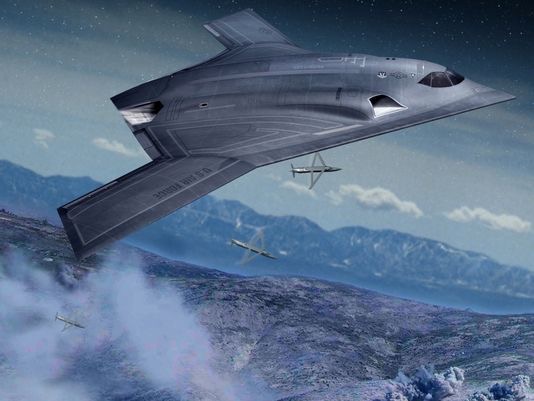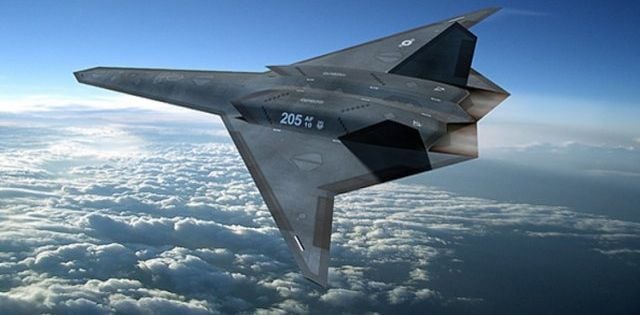No Bomber Talk As SecDef Visits Boeing; Carter Opens DARPA Do
Posted on
ST. LOUIS: It was the question of the day: Mr. Secretary, can you elaborate on the Long Range Strike Bomber?
The Pentagon plans to buy 80 to 100 of the $550 million-a-copy bomber — most details of which remain classified.
A Boeing employee asked the question after a short speech by Defense Secretary Ash Carter, here to prime the pump of the innovation well that senior Pentagon leaders bemoan is increasingly dry. Boeing leads one of two teams competing quietly but furiously to win the biggest new program for a while. But the final decision as to whether the Boeing-Lockheed team or Northrop Grumman — the incumbent by dint of its work on the B-2 — is nigh.
“Thats something we didn’t talk about today,” Carter said, noting that he did not want to tilt the competition one way or another.
But Carter, who lunched with young tech high fliers at a DARPA conference after leaving Boeing’s Phantom Works, was briefed through the morning by Boeing employees on a range of black and white programs other than the bomber.
Carter is here to continue pressing his effort to encourage high tech firms, most of whom don’t do business with the Defense Department, to work more closely with the Pentagon and help the US military maintain its technological edge. The DARPA conference — entitled “Wait? What?” — is being held explicitly to attract non-traditional defense innovators to consider working with the military
A senior defense official told us that roughly half of the 1,500 registered attendees are people who don’t normally work with the Pentagon.
After being greeted with a wave of woo hoos and a standing ovation (something that defense secretaries rarely attract outside of a military base), Secretary Carter delivered his keynote speech to the conference, noting that he came here in hopes of encouraging them. Innovation, he told them, is “happening in traditional defense companies like the one here in St. Louis, Boeing, that I visited today. And in some areas of technology, it’s happening most quickly in commercial start-ups and in non-defense companies. DoD has to tap into that stream of innovation and emerging technology, and it has to do so much more quickly – that’s why a conference like this one is so important to the Defense Department.”
Subscribe to our newsletter
Promotions, new products and sales. Directly to your inbox.


